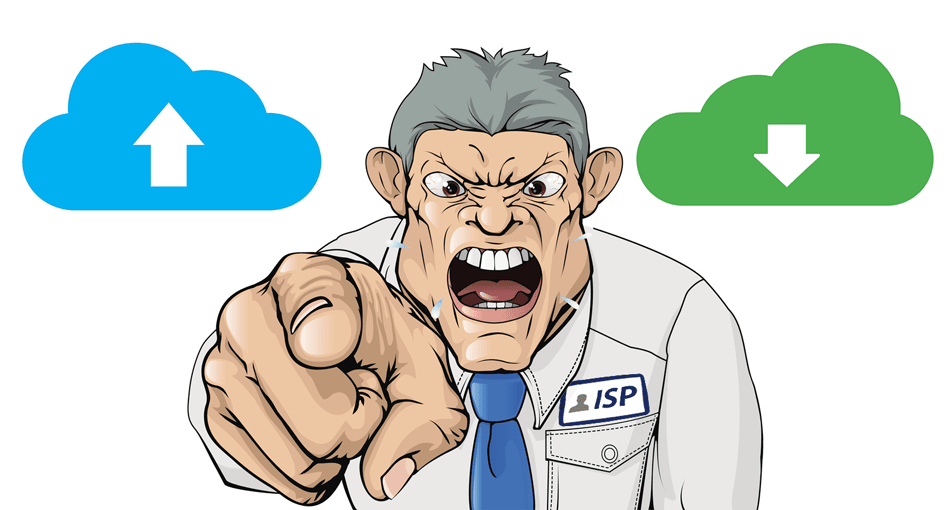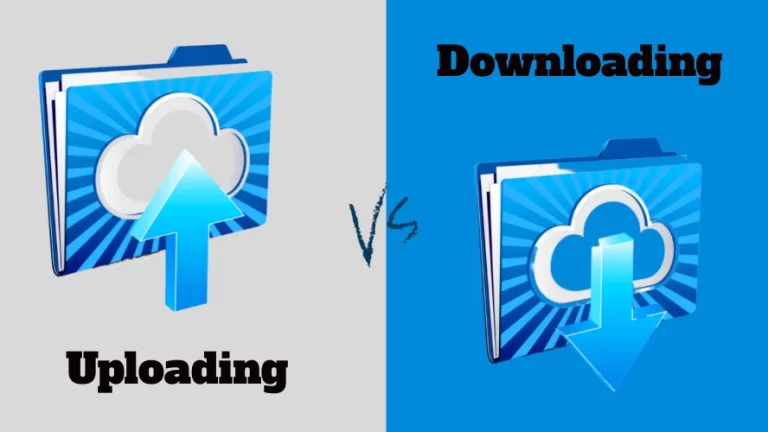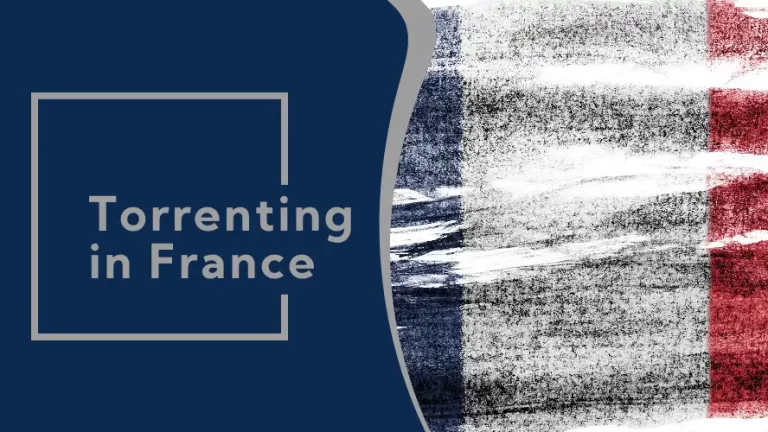If there’s one thing that Internet Service Providers (ISPs) hate, it’s torrenting. However, they understand that most people interested in 1 Gbps or 10 Gbps service are probably doing it. A common response is that ISPs offer higher download than upload speeds. It isn’t that it costs them more money to allow users to upload. The reason is to discourage the uploading of large files.
Of course, some ISPs offer high-speed plans with the same upload as download speed. A common plan in the United States is 500 Mbps upload/500 Mbps download. The average user will never need close to these speeds, especially for uploading. So, why do these companies hate torrents but love the business?
Why Are ISPs Against Torrenting?
Even though individual companies’ stances may differ, most are against the practice. However, in many countries, it would be either taboo or illegal to outright block P2P activity. Torrenting is often associated with piracy, but intellectual property “theft” isn’t ISPs’ main problem.
ISPs count on the bulk of customers to minimally use their networks. Even high-definition video streaming usually only takes about 25 Mbps. The average customer likes lightning-fast speeds, so companies offer them. If every customer maxed out bandwidth, their grids would simply crash. Networks are designed to account for approximately 5% of “power users”. They usually assume that 95% of users will just use the web periodically.
No activity generates constant up-streams and down-streams like torrenting. ISPs know it will happen, but they take steps to discourage it. While they could simply upgrade network capacity, that would eat into profits. A common solution used to be an arbitrary “data cap”. For example, an ISP would impose something like a 250 GB per month limit on data transfer.
Many countries and individual provinces and states banned this practice. This is because ISPs charge users for monthly access just like a utility. Even in places where caps are legal, companies tend to shy away from it. Even those who don’t torrent tend to get angry. Data caps are terrible for public relations, so it’s mostly an issue of the past.
The Legal Angle
Though the main reason ISPs hate P2P activity is resource use, they also worry about legal liability. Each country has vastly differing laws on what constitutes “copyright infringement”. There are some countries where downloading copyrighted content is legal. Notably, it’s incredibly rare for uploading or “seeding” content to be legal in any country.
Intellectual Property owners in some countries aggressively pursue alleged pirates. This involves going into swarms and grabbing IP addresses. Depending on the severity, they may simply complain to the ISP. If it’s a very strict country, it could even turn into a legal subpoena.
Either way, it can create a headache for ISPs. Pressure from Intellectual Property owners has led to “strike” policies. Many ISPs have a set number of times a user may be accused of copyright infringement. Once the threshold is met, the user’s service is canceled. This was done in an attempt to lessen the volume of legal action that was being taken.
In some countries, copyright owners can take an ISP to court. They then demand to know the identity of the user of who they suspect. From there, the user could be sued in some cases. If an ISP does nothing about piracy internally, they could be sanctioned in some places. At best, their public image would deteriorate.
What If My ISP Catches Me Torrenting?
The news usually focuses on stories involving legal action. Over the years, popular opinion has guided copyright holders away from this in most cases. However, if it’s an egregious violation, like uploading a movie before it hits theaters, legal action is common. At worst, you could be referred to authorities or civil court for prosecution.
The US makes most types of copyright infringement “civil” in nature. That means there’s no possibility of going to jail, but you could lose lots of money. This is a relatively uncommon approach. Most countries that outlaw the practice treat it as a criminal matter!
In all likelihood, getting caught torrenting will not ruin your life. You could receive a “strike” if your ISP implemented the “strike policy”. If that happens, you should carefully review your contract. It’s possible that if you get caught again, you could lose your Internet service.
Generally, ISPs don’t need to give you a warning before killing your service. If they have good evidence that you shared copyrighted material, that’s enough. However, most won’t do this because it would mean losing your business permanently. The most common steps taken in minor cases are “soft measures”.
Soft Measures
Even if you’re torrenting legal material, your ISP will likely be displeased. Unfortunately, many see all P2P users as “resource hogs”, but that isn’t always the case. Torrenting something not copyrighted or an older movie is very unlikely to lead to drastic actions. Rather, ISPs usually implement precautions to prevent you from torrenting.
The most common way they do this is through “throttling” you. If you look closely at Internet offers, you’ll see that most offer “speeds up to …”. This is because most reserve the right to lower your maximum upload and/or download speeds. For example, if you were on a 500 Mbps/500 Mbps plan, you might see a hard 200 Mbps cap implemented. Most countries have regulations on the degree to which you can be throttled.
A more targeted approach is called a “single-sided throttle”. With this model, your ISP simply cuts your upload speeds but leaves your download speed where it is. For example, if you had a 500 Mbps/500 Mbps connection, you might see it cut to something like 100 Mbps/500 Mbps.
The most targeted “soft measure” ISPs take is an all-out block on torrent traffic. They may ban port ranges that correspond to popular torrent clients. Others could ban specific protocols used in P2P transfers. Some countries even allow ISPs to block access to P2P communities! This often boils down to determining whether “freedom of speech” constitutional protections apply.
Sometimes, your ISP might not have the legal authority to do anything. They may send a “threat letter” to you regarding your P2P activity. Read the contents of these very closely, as some mention the consequences if it happens again, etc.
How Can I Hide My P2P Activity from My ISP?
By far, the best and easiest way to hide torrenting is to use a VPN. It’s always best to start out using a VPN rather than wait for consequences. This prevents disciplinary measures from your ISP.
A VPN has “end-to-end encryption”. All your ISP can see when you use a VPN is that you are connected to it. They can meter the bandwidth you use. Most importantly, they can’t see the contents of your web traffic. With the protection of a VPN, an ISP can’t even know you’re torrenting!
They may have suspicions due to the volume of data being transferred. Some ISPs will still request that you use less data. However, they usually would not have the law on their side. Without evidence of copyright infringement or torrenting of any kind, there’s little they can do.
Of course, you will need to thoroughly research VPN services first. Some, mostly “free”, VPN services are predatory. These rogue services will log your data and sell it! There’s nothing to stop them from selling it to authorities or your ISP. Remember, if you aren’t paying for the product, you are the product!
How Does This Relationship End?
Unlike many marriages, divorce of ISPs and P2P users is extremely unlikely. When you see this article, it probably looks like a giant chunk of information, but there are a few key takeaways here.
First, regardless of your intent, know the torrenting laws of your country/state/province/locality. You may be surprised at how lenient (or not so lenient) they can be. Knowing the law will help push the importance of always using a VPN!
Second, one of the most common “black marks” a user can get is “P2P User”. ISPs often pigeonhole users. They run automated scripts at randomized times. If it sees you torrenting, you may be categorized as that. Regardless of whether it’s the only torrent you’ve ever downloaded, it counts.
Following that, remember that ISPs don’t really care about legality. They care about their own bottom line and your resource usage. Even on perfectly legal torrent sites, still use a VPN. Just like with most life activities, starting outright can save you tons of hassle and money along the way.



